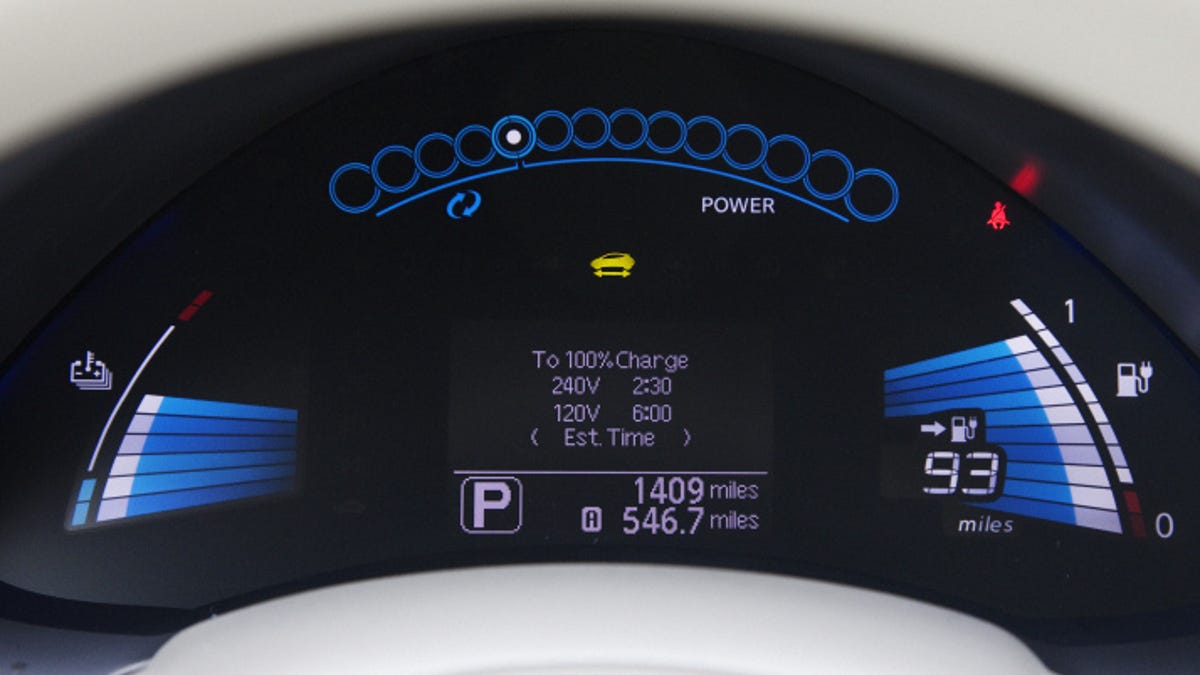For many EV drivers, range anxiety drops after three months (study)
With a variable driving range and charging stations few and far between, EV drivers have cause to worry if they'll reach their destination. But for many, the mental stress vanishes after just three months of zero-emissions commuting.

With a limited driving range and charging stations that are few and far between, electric vehicle (EV) drivers have good cause to worry that they may not make it to their final destinations. But for many drivers, the mental stress known as "range anxiety" disappears after just three months of real-world zero-emissions commuting.
A study by the U.K.'s Technology Strategy Board (TSB) of 340 ultralow-emissions vehicle drivers--many of which are EV early adopters--found that after three months of driving an EV, range anxiety dropped by 35 percent (PDF). Before the study began, 100 percent of the EV drivers worried about being able to make it to their destinations, but at the three-month check point, only 65 percent felt the same way.
A lack of charging opportunities is one of the main causes for range anxiety, according to the TSB. To compensate, study participants drove more efficiently and planned trips more carefully. Researchers also found that as the drivers became more familiar with their vehicles' capabilities, they charged them less often, and over time, let their batteries become more depleted before plugging in. By going longer between charges, drivers demonstrated increased confidence in their EVs.
Worrying or not, an overwhelming majority of the EV drivers found their vehicle met their daily driving needs. Of the private vehicle operators involved in the program, 83 percent said their electric car met their daily driving requirements, while 63 percent of fleet drivers agreed.
But as far as range goes, people still feel that more is better. Private drivers felt that a 92-mile range is necessary in an ideal world to satisfy their daily driving habits, and fleet drivers required 120 miles. To satisfy all trips (not just daily commuting and errands), private drivers wished for a range of 206 miles, while fleet drivers felt that 168 miles would be more than enough.
It's not just U.K. drivers who are satisfied with EV performance. A study by BMW and the University of California, Davis of Mini-E pilot participants in the United States resulted in very similar findings. Despite the spread-out nature of U.S. suburbs, the majority of drivers felt their EV was suitable for daily use. However, one of the key differences the BMW study found was that the Mini-E drivers relied on a second carto help them make longer trips and avoid range anxiety.
Source: Greenbusiness.com

